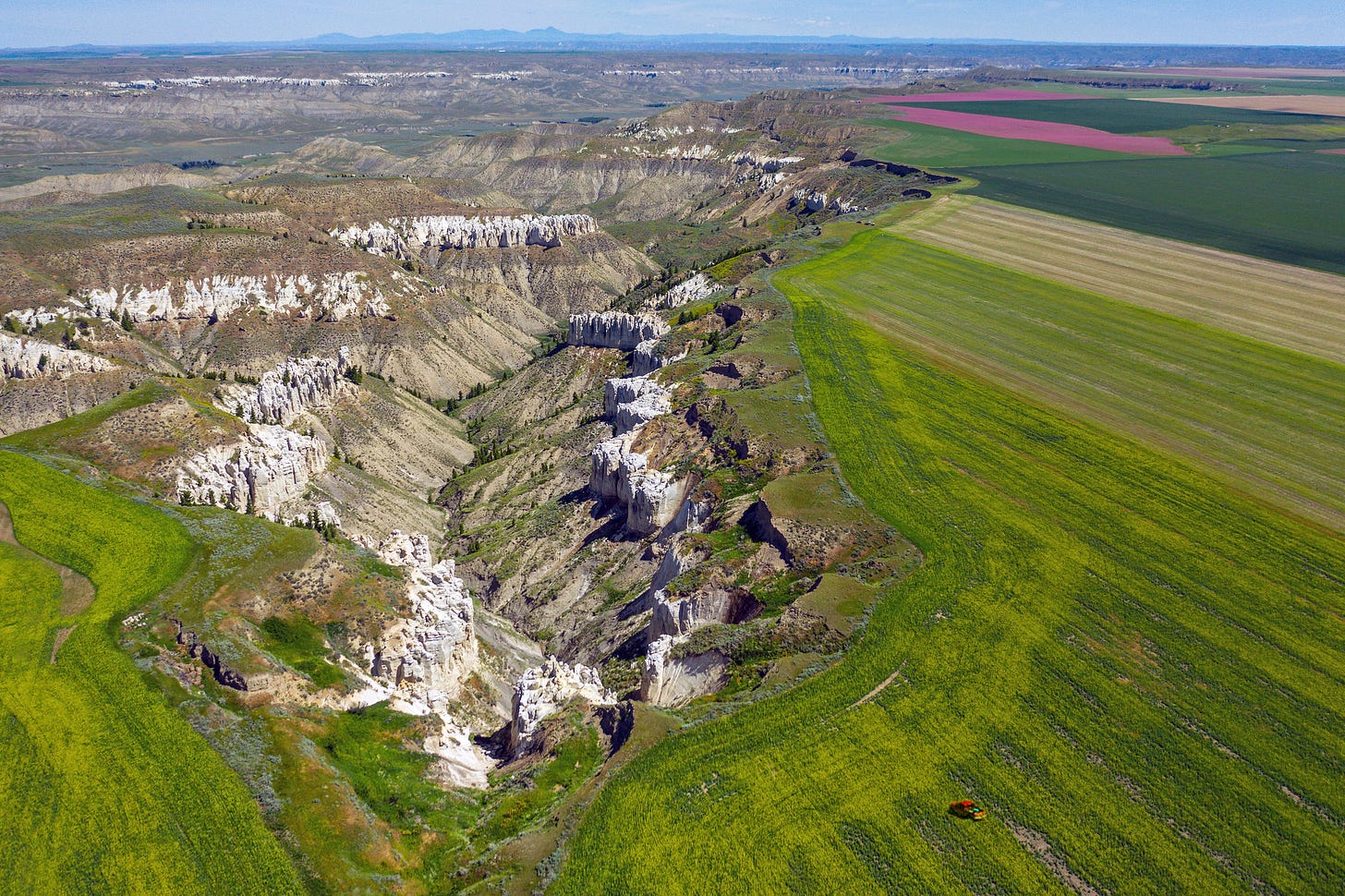I was a boy when my dad first left me alone to hunt the hillsides deep in the Arrow Creek Breaks of central Montana. The Breaks were deep canyons that crisscrossed the Montana plains, largely remote and inaccessible. They were forty miles north on a gravel road from the small farming town we called home. Only a handful of ranchers lived anywhere close. The ridges were steep—clifflike—filled with heavy timber, sage brush, cactus. Even for an adult, the Breaks were a place to get lost.
Lost.
The word is like poetry: we don’t need textbook definitions; it bypasses our minds and seizes the deepest parts of us. We experience lostness before we can name it. We are still children when we learn to run from it at all costs.

My dad and I hunted the Arrow Creek Breaks as a team, but he often wanted to split up. Sometimes he would leave me alone for hours while he pursued the fresh tracks of a trophy deer. This was a lot for a young boy still learning multiplication tables at school, but it wasn’t cruel or even unusual where I come from; it was part of our culture. Hunting was a rite of passage. Hunting alone was part of life.
Every time my dad told me we were splitting up, my stomach would turn. The moment he left, I got to work retracing my steps back to our truck, usually miles outside the canyon. We didn’t have cell phones, and I couldn’t drive forty miles back to town. But I knew if I could find the truck, I wouldn’t be lost.
I tried to focus on the hunting tasks at hand. Where was I supposed to be? What was I supposed to do? How long would it take? All of my dad’s instructions were muddled in my own anxiety. The only thing I could think about was how much I wanted to be found.
More than once, I was overwhelmed by my lostness. Defeated. I couldn’t do it. I would start yelling for my dad at the top of my lungs, my voice shattering the silence of the Breaks as cold tears rolled down my cheeks. In canyons as cavernous as the Arrowhead Breaks, I’m sure my dad couldn’t hear me. I think I even knew it then. But crying into the silence of those Montana skies gave voice to what it was like and how much I wanted to escape it: being lost.
Jesus didn’t use the word lost to shame people. He used it to connect with them. He used it to communicate his desire to find them.
So when Jesus says that he came to the world, “to seek and to save the lost” (Luke 19:10 ESV), I’m not thinking about people who don’t believe the same things I do. I’m not thinking about theological categories. I’m not thinking about the way Paul explained the technical terms of salvation to the early Church.
When Jesus says he came for the lost, I think about what it felt like to be a young boy, lost in the wild places of Montana. The panic. The anxiety. The desperation. The loneliness. The way I felt it in every part of my body. The longing to be found, the aching to go home.
Eight billion people live on this planet today. Despite our unlimited diversity, I would venture to guess every one of us shares this: the intuitive understanding of what it’s like to be lost. Perhaps, even, the present experience of it. There are parts of each one of us—every eight billion of us—longing to cry into the skies, knowing the ache of being abandoned, desperate to be found.
Jesus understood that. I think that’s why he used the word “lost” to describe his mission. He told stories about it, too: the parables of the lost coin, the lost sheep, and the lost sons (Luke 15).
In many Christian circles today, you hear the word “lost” used to describe people living without a spiritual waypoint in Christ. It’s almost clinical. You also hear it used in judgment. You hear it used to dehumanize entire groups of people.
Yet Jesus didn’t use the word “lost” to shame people. He used it to connect with them. He used it to communicate his desire to find them. His desire to find us.
As we follow Christ, trying to see the world through his eyes, I think one of the most important things we can do is reconnect with the experience of being lost. Recall a time when you were actually, physically lost. Remember moments of feeling lost in life. Maybe parts of you are feeling lost in this very moment. In the safe presence of Christ, you can offer the lost parts of your heart a voice. Jesus doesn’t leave us alone in our lostness. He’s ready to find us, to welcome us home.
Before we pin the label of “lost” on others, let’s connect compassionately with the visceral experience of being lost. Let’s dive deep into the way Jesus talked about it, what he assumed about people who were experiencing it, and what he offered them in his presence. Let’s remember what it was like when we were first found. Only with this compassion can we carry Christ to those who are longing to come home.





